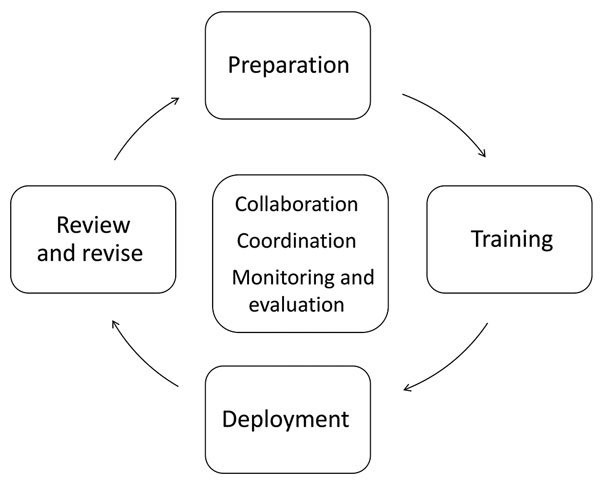Volume 23, Supplement—December 2017
SUPPLEMENT ISSUE
Global Health Security Supplement
Prevent
Enhancing Workforce Capacity to Improve Vaccination Data Quality, Uganda
Figure 1

Figure 1. Overview of processes and key activities of the Uganda data improvement team (DIT) strategy to improve vaccination data quality. At the center are elements that are ongoing throughout implementation of the 4 main activities: financial, technical, and logistical collaboration between Expanded Program on Immunization partners, coordination provided by a DIT strategy management group and the DIT national coordinator, and routine monitoring and evaluation. Preparation includes discussing and developing budget, designing the approach to implementation and materials for training and monitoring and evaluation, training supervisors, grouping districts into regions, and identifying DIT members. For training, grouped by region, DIT members from several districts attend a 3-day training led by staff from the Ministry of Health Expanded Program on Immunization and the DIT strategy national coordinator. This training included a combination of technical lectures, practical case studies (80% of all sessions), and a practice visit to a health facility (half-day). Deployment core activities include district and health facility organizational assessment and a rapid data quality improvement questionnaire to identify strengths and gaps in resources and systems for immunization data management, collection, analysis, and use. Results inform recommendations developed by the DIT members who provide on-the-job training of staff to strengthen action on recommendations. DIT members debrief leadership (region, district, health facility) on findings and recommendations, and harness support to implement recommendations. Finally, national DIT strategy management groups review activities and results at several time points (Figure 2); based on evidence from implementation and current national priorities, the strategic and operational approaches are revised, then reimplemented.